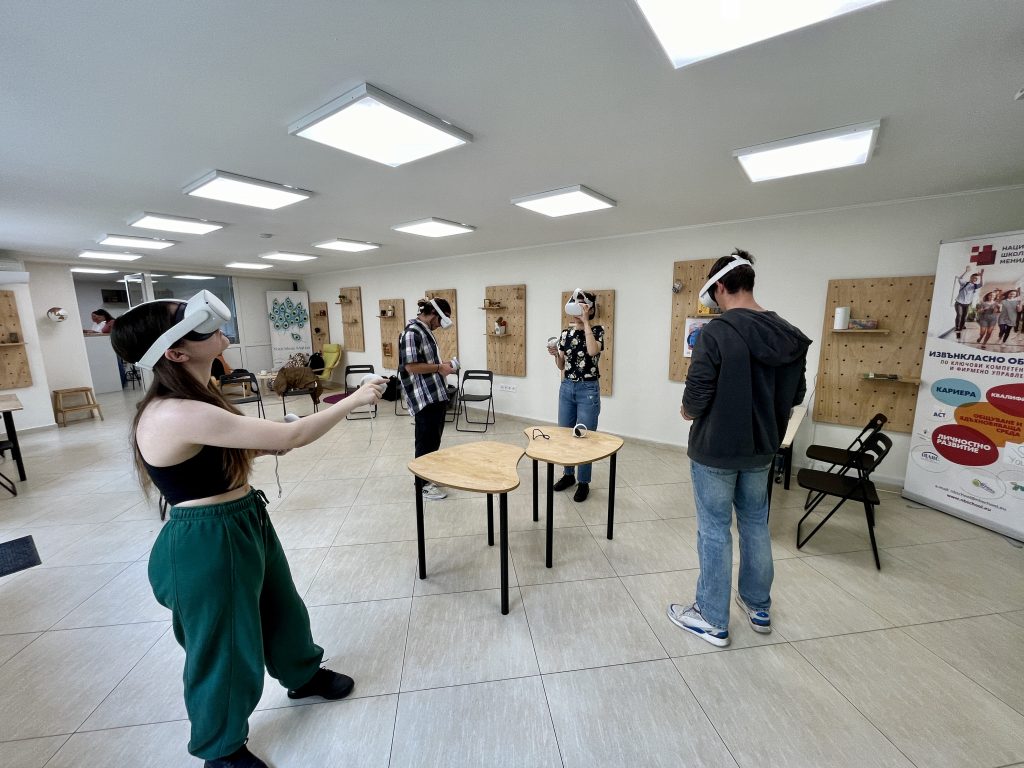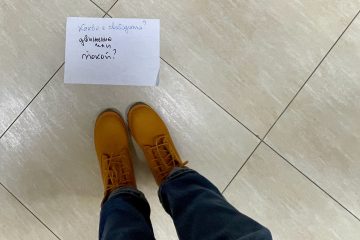In today’s session within the VR4learning Project, www.vr4learning.eu, seven students and their mentor delved into the realm of Virtual Reality (VR), with varying levels of prior experience. While two had dabbled in VR briefly, for the remaining five, it was an entirely novel encounter. Their curiosity was palpable, eager to unravel the mysteries of this burgeoning technology and its myriad applications.
The session kicked off with an introduction to the project, its partners, and the marvels of VR technology. To ease into the immersive experience, the group started with warm-up videos, familiarizing themselves with the sensation of wearing VR glasses and navigating virtual environments.
Following the preparatory phase, a spirited discussion ensued, guided by prompts that illuminated the advantages of VR. The students articulated the challenge of grasping the environmental consequences of human actions, despite being cognizant of them. VR, they realized, offered a potent solution, allowing them to bear witness to the tangible impacts of phenomena like global warming firsthand.
The conversation expanded to encompass scenarios like deforestation, where VR could elucidate the real-world ramifications of different decisions. As the students virtually toured university campuses, they recognized VR’s potential to aid in future career and educational choices. By bringing campuses closer and contextualizing factors beyond rankings, such as environmental considerations, VR empowered them to make informed decisions.
Moreover, they highlighted VR’s utility in education, particularly in disciplines like history, where it facilitates the visualisation of abstract concepts. Traveling through time virtually, they found, made historical contexts more memorable and vivid.
Yet, the discourse extended beyond mere technological novelty to address systemic challenges in education. The perennial struggle of translating theory into practice found a potential remedy in VR, bridging the gap between abstract concepts and real-world applications.
The discussion also broached the prospect of virtual travel, not as a substitute for physical exploration, but as a preparatory tool. VR experiences, they noted, could democratize access to travel, transcending financial constraints and physical limitations.
Crucially, the students recognized VR’s therapeutic potential, offering a safe space to confront and overcome fears, such as acrophobia, in a controlled environment.
In essence, the dialogue underscored VR’s multifaceted role, from environmental education to career planning and personal development. As they bid farewell to the session, the students departed with a newfound appreciation for the transformative potential of VR in reshaping various facets of life.








